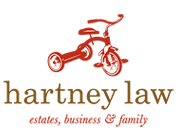Let me just say this… No. Do not add your kids to your deed. …Unless…(I am a lawyer after all) There are few questions in law with a pretty definitive answer. But this is one. Let’s start with the hard and fast rule of “Don’t add your kids to your deed.” Here’s why. Adding […]
Tag Archives: elder care
How Can I Talk to My Parents About their Estate Plan?
What You Don’t Know About Your 401(k) Can Hurt You!
You have a 401(k), right? Sure you do. And you have one (or more) because everyone tells you it’s a heck of a deal. But has anyone ever told you that your IRS qualified fund strategy could end up being a horrible weight on your retirement?
Every January, you opt in to contribute to your 401(k) the maximum allowed that year. You’ve been told over and over that this type of retirement fund will become a nice big nest egg for your retirement on dollars you never paid tax on! Isn’t that something?! What could possibly be wrong with stiffing Uncle Sam every year for the taxes you owe on that maximum contribution?
Well, a lot, actually.
Photo by Nicki Varkevisser on Flickr (http://www.flickr.com/photos/clickflashphotos/)
Picture this…
Questions to Ask About Nursing Home Care
Last week, I promised to give you some thoughts on nursing home care. And here it is!
Now that we’re living longer than ever, we need to ask some tough questions about how to care for our elders (and ourselves) when the time comes. Making the decision to place a loved one in a nursing home can be one of the most heart-wrenching decisions you’ll ever make.
Mom, long before her last illness.
Can you believe this woman had 10 kids?
An Eye On The Horizon–Planning for a Golden Future
My mom, shortly before she passed away.
She’s why I want to help people have a good, secure, content old age.
Ain’t she something?
We all know that Americans are living far longer today than we were even a short time ago. But we’re living sicker lives. Currently, elder Americans spend 65 cents of every dollar spent on health care and that amount is expected to take a sharp upward turn in dollars and as a percentage of expenditures in the near future.

